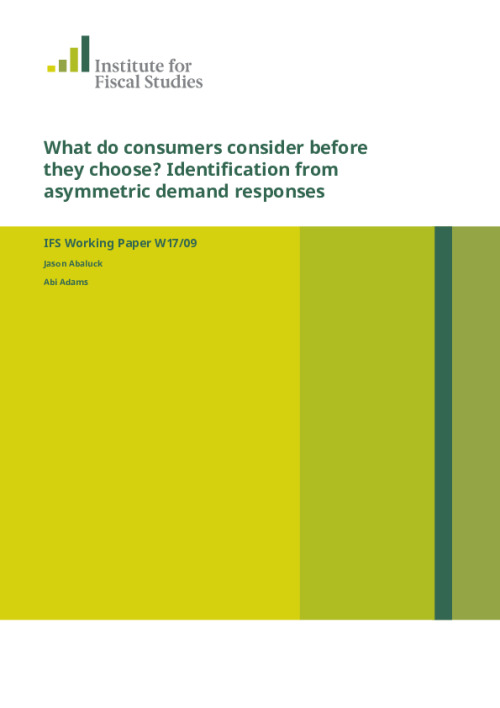Consideration set models relax the assumption that consumers are aware of all available options. Thus far, identification arguments for these models have relied either on auxiliary data on what options were considered or on instruments excluded from consideration or utility. In a discrete choice framework subsuming logit, probit and random coefficients models, we prove that utility and consideration set probabilities can be separately identified without these data intensive methods. In full-consideration models, choice probabilities satisfy a symmetry property analogous to Slutsky symmetry in continuous choice models. This symmetry breaks down in consideration set models when changes in characteristics perturb consideration, and we show that consideration probabilities are constructively identified from the resulting asymmetries. In a lab experiment, we recover preferences and consideration probabilities using only data on which items were ultimately chosen, and we apply the model to study hotel choices on Expedia.com and insurance choices in Medicare Part D.









